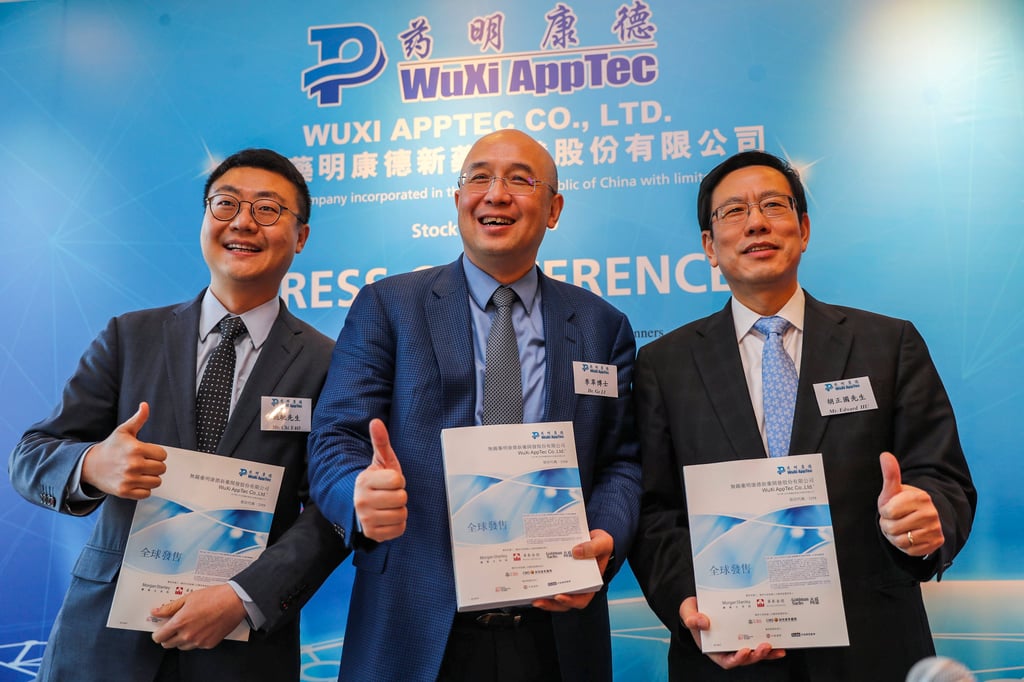Shares of WuXi AppTec and WuXi Biologics surged in Hong Kong on Friday, following a report that the two firms are looking to divest some of their operations in the wake of new United States legislation targeting Chinese biotech companies.
WuXi AppTec’s shares closed up almost 12 per cent to HK$67.10 on Friday, while shares of subsidiary WuXi Biologics rose nearly 15 per cent to HK$21.45.
Those gains were made after The Financial Times, citing people familiar with the matter, reported on Thursday that WuXi AppTec has put on the market its cell and gene therapy unit WuXi Advanced Therapies, which operates four laboratories and manufacturing facilities in Philadelphia, Pennsylvania.
If the bill is enacted into law, it will bar federal contracts with the targeted Chinese firms and their American subsidiaries. The initial targets are WuXi AppTec, WuXi Biologics and BGI Group, along with its spin-off MGI and US subsidiary Complete Genomics.
The legislation aims to encourage US firms to cut their reliance on Chinese research and manufacturing, while safeguarding US data and American firms’ intellectual property that could be threatened by China.
WuXi AppTec and WuXi Biologics previously denied that they pose any security risk to the US.
There were a total of 28 measures scheduled for a vote last month by the Republican-led House that reference or focus on competition with China, addressing issues ranging from countering Beijing’s technological, political and economic influence to bolstering American allies in the Indo-Pacific. Most of the bills are Republican-led, but draw on bipartisan support.
WuXi AppTec reported first-half revenue of 17.24 billion yuan (US$2.4 billion), down 8.6 per cent from a year earlier, while its profit fell 20 per cent to 4.24 billion yuan in the same period. That marked the first time in five years that the company saw a decrease in both its top and bottom lines.
The company generated 65 per cent of its sales from the US last year, according to Zhongtai Securities. For WuXi Biologics, 58 per cent of its sales came from the US in the first half of this year.
Before founding his own company, Li had worked for US biotech firm Pharmacopeia after completing his studies. He received a PhD degree in organic chemistry from Columbia University in 1994 after graduating from Peking University in 1989.

